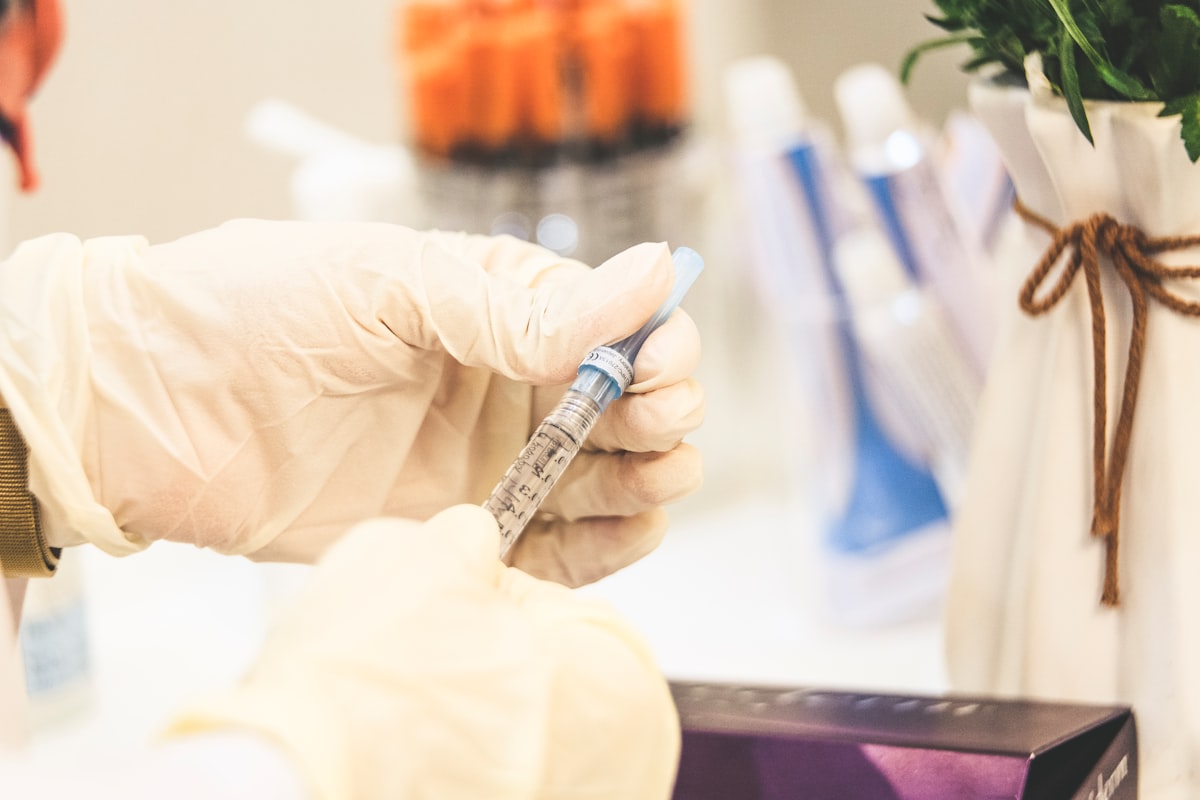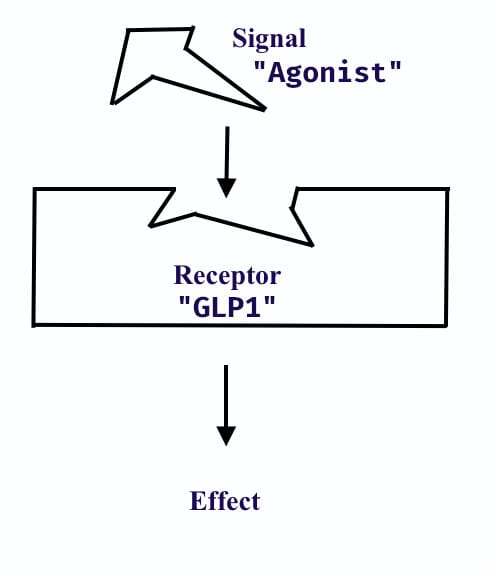What are "GLP1 Agonists"?

Here's the simple version you could have looked up on Wikipedia:
The Term "GLP1 Agonist" refers to a class of drugs that reduce blood sugar and energy intake by activating the GLP1-receptor. (Wikipedia)
Let's make things even simpler:
Drugs that are called "GLP1 Agonist"s release a hormone in your stomach which is normally released after you eat. This calms your food cravings and makes it easy to eat less.
OK, now let's break it down a bit more, starting with the"GLP1" term we keep throwing around.
What does the term "GLP1" mean?
There's a hormone receptor in your gut (your pancreas) which is involved in the control of blood sugar.
This hormone receptor is called a "Glucagon-Like Peptide-1 receptor" (so "GLP1" for short).

The signals that come into hormone receptors are chemical signals. An "Agonist" is the name of the "signal" in the picture above. It's a chemical that activates a receptor.
Normally your body produces some signal that is received by the receptor, and the receptor triggers the relevant effect in your body.
GLP1 is a naturally occurring hormone in your body, involved in managing blood sugar and insulin.
Putting it all together – GLP1 Agonist drugs send chemical signals to the GLP1 hormone receptors in your gut, making them do... Something.
What does the GLP1 Receptor actually do?
The GLP1 hormone receptor does a lot of things that are relevant to diabetes and weight control in general:
- Enhances insulin production (a hormone that does a lot of things) which makes your body break down fat and build muscle.
- Slows down stomach emptying (you'll feel full longer)
- Improving Glucose (a simple sugar) disposal
- Reduces appetite by affecting the brain directly (not your gut!)
- Boosts memory/learning (so far, only proven in mice)
GLP1 receptor agonists do a ton of things to help regulate blood sugar which keeps you feeling full and crushes cravings. It is primarily used to treat type 2 Diabetes but also has increasingly clear effects on weight loss in general, which is why the drugs are so popular now.
Before we move on, let's talk about Insulin a bit more, it's quite the complex hormone!
What does insulin do? Why do we want to produce more of it?
Insulin does a lot of beneficial things in your body:
- Helps Control Sugar in Your Body: Think of insulin as a key that opens doors in your body's cells. When you eat, your body turns food into sugar (or glucose), and insulin helps this sugar get into cells to give them energy.
- Saves Extra Sugar for Later: When your body has more sugar than it needs, insulin helps store this extra sugar in your muscles and liver. It's like putting money in a piggy bank for when you need it later.
- Stops Body from Making Unneeded Sugar: Sometimes your body tries to make extra sugar, but insulin tells it, "No thanks, we have enough!" This keeps the sugar levels in your body balanced.
- Helps Store Fat: Just like with sugar, insulin also helps store fats in the right places in your body. It's like organizing toys in a toy box so you can find them when you need them.
- Builds Muscles: When you eat foods with protein, insulin helps your muscles use this protein to grow stronger.
- Controls Blood Flow: Insulin can even help manage how blood moves around in your body, ensuring that different parts get the energy they need.
What kinds of GLP1 drugs are out there?
There are bunch of GLP1 drugs with different names out there, here's a list:
- Semaglutide (Ozempic®, Wegovy®, Rybelsus®)
- Liraglutide (Saxenda®)
- Dulaglutide (Trulicity®)
- Tirzepatide (Mounjaro®)
While the compounds are slightly different, all these drugs work in roughly the same fashion, which is why together they're called "GLP1 Agonists".
Putting it all together
Let's take a step back and try to put all this together.
GLP1 Agonists are drugs that send a signal to your hormones that encourage them to produce insulin, suppress appetite, and many other beneficial things related to weight loss.
People take GLP1 Agonists to help control their Type 2 Diabetes, and lose weight. GLP1.guide exists so that you can find out more before you ask your doctor or start a regimen on these drugs.
Thanks for reading! Remember to always contact a healthcare professional before starting a regimen of any drug or treatment, and weigh the risks and benefits to your lifestyle and goals.




